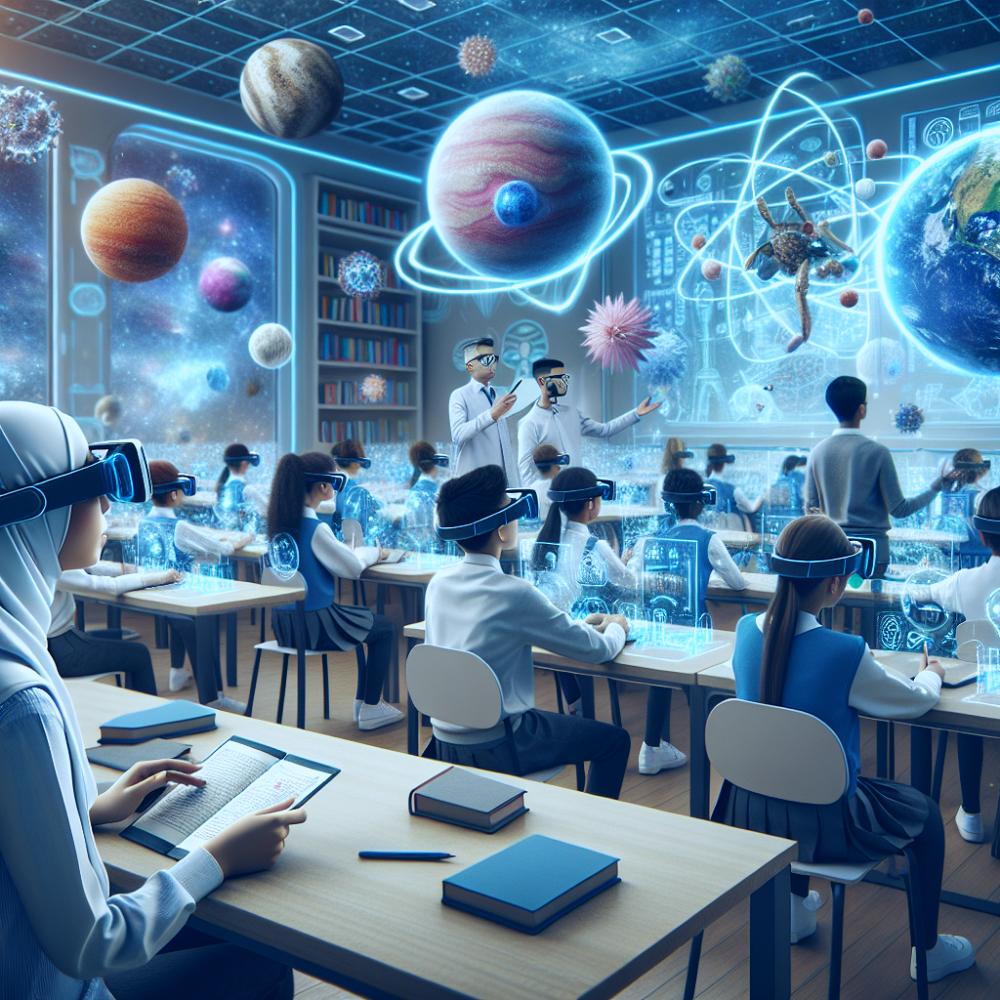Augmented Reality in Education: Shaping the Future of Learning
- Future-predictions
- By Johnny Van Cooler aka Gangsta Tech-freeky

Yo, AR in Education: The Future is Now, Gramps!
Wassup, my ancient homies! Gather 'round 'cause I'm 'bout to drop some futuristic knowledge on y'all. We're talkin' 'bout AR in education – that's Augmented Reality for those who ain't hip. It's like science fiction, but it's real and it's here to stay. Let me break it down for ya, old school style, so you can see why this modern tech is way better than those dusty textbooks you used back in the day.
What the Heck is AR?
Alright, so AR stands for Augmented Reality. It's kinda like virtual reality's cooler cousin. Instead of taking you to a whole new world, AR puts digital stuff right into your real world through a screen, like your phone or tablet. Imagine your grandkid pointing their phone at a boring ol' history book and BAM! George Washington pops up and starts talking. How rad is that?
Why AR is a Game-Changer in Education
Now, you might be thinkin', "Why do we need this fancy tech in schools?" Well, lemme tell ya, it's a total game-changer. Here’s why:
1. Makes Learning Fun
AR makes learning way more interactive and fun. Instead of just reading about the solar system, kids can see planets orbiting right in front of them. It's like bringing the universe into the classroom.
2. Keeps Kids Engaged
Back in your day, staying awake in class was a struggle, right? With AR, kids stay engaged 'cause they're not just listening – they're experiencing. It’s hands-on learning without the mess.
3. Enhances Understanding
Sometimes, reading about something just ain't enough. AR helps kids understand complex concepts by showing them in 3D. It’s like having a personal tutor who's always there to explain things.
Old School vs. New School
Now, don’t get me wrong, the old ways had their charm, but let’s be real – modern tech is where it's at. Back in your day, you had chalkboards and textbooks. Today, we got interactive screens and AR. Learning ain’t just about memorizing stuff anymore; it’s about experiencing and understanding. AR helps bridge that gap, making education more effective and accessible.
Glossary
AR (Augmented Reality) - A technology that overlays digital information on the real world.
Virtual Reality (VR) - A simulated experience that can be similar to or completely different from the real world.
Interactive - Involving active participation.
3D (Three-Dimensional) - Having or appearing to have length, breadth, and depth.
Engaged - Actively interested and involved.
Concept - An abstract idea or general notion.
Tutor - A private teacher, typically one who teaches a single student or a very small group.
Accessible - Easy to approach, reach, or use.
Technology - The application of scientific knowledge for practical purposes.
Science Fiction - Fiction based on imagined future scientific or technological advances.
Orbiting - Moving in a circular or elliptical path around a central point.
Digital - Involving or relating to the use of computer technology.
Screen - The flat surface on a television or computer where pictures or words are shown.
Tablet - A small portable computer that accepts input directly on its screen rather than via a keyboard or mouse.
Solar System - The collection of eight planets and their moons in orbit around the sun.
Universe - All existing matter and space considered as a whole; the cosmos.
Effective - Successful in producing a desired or intended result.
Experience - Practical contact with and observation of facts or events.
Memorizing - Committing something to memory; learning by heart.



